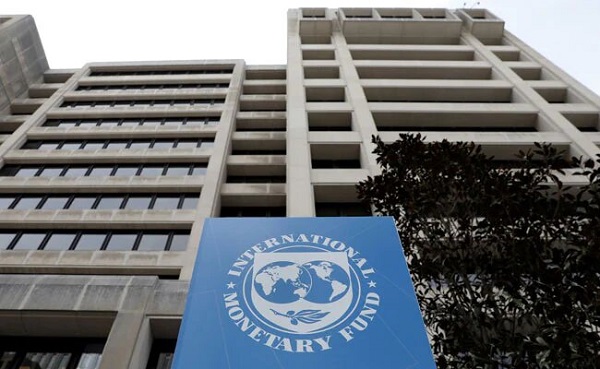How To Become A Successful Wedding Planner
The wedding is one of the most important events in the life of any couple. To ensure your success, it is essential to have the service of a wedding planner, who will take care of each and every detail. In this note we will analyze why it is essential to incorporate its role in a wedding.
Differences with an event organizer
A wedding coordinator is usually a service offered by the venue, hall, in which the event will take place. Within its functions, this concentrates the control, at the time of the event, of the service provided by the suppliers and that everything is completed in a timely manner. Their work is limited to what happens during the celebration, so they must be present from the arrival of all suppliers until the end of the event.

In turn, the organizer controls all the details of the wedding day so that the couple can relax and enjoy the party.
An important point to highlight is that, in this case, it is the couple who have to be in charge of the prior organization, hiring suppliers, preparing the timing and the checklist, etc.
Meanwhile, a wedding planner designs the event tailored to the couple, based on their expectations and the resources they have. The wedding planner accompanies the couple from day zero, even after the celebration has occurred. A task that generally takes at least a year.
This means that the wedding planner is with them throughout the entire process: before the day of the event, during and after.
Most common functions of a wedding planner
Some of the most important tasks of the wedding planner include the organization of each moment of the wedding, how to send the invitations, the contact with the suppliers and more.
This is a list of the most important responsibilities of the wedding planner:
- Comprehensive planning and organization of the wedding, from the engagement party, the bachelor and bachelorette party, the civil wedding, the religious ceremony and the celebration.
- Support in civil and religious registration procedures.
- Hiring all suppliers: it is customary to quote with at least three suppliers in each category.
- Putting together the conceptual idea of the wedding: this includes the setting with all its components, catering, music and entertainment, photography and video, souvenirs, transportation, hotel reservations, etc.
- Personal image advice: for choosing the wedding dress, groom’s suit, bridesmaids, bridesmaids, and more. Also regarding makeup, hairstyle and accessories.
- Advice on wedding protocol: refers to how the invitations should be, table etiquette issues, the dress code, advice on gastronomy and pairing, elements to consider when choosing the menu and dressing the tables, among others. others more.
- A key role is that during the event he ensures that everything goes as planned.
- Hiring tourism services for the honeymoon or whatever the couple has chosen
- Guest list management, confirmation of attendance. Assistance in writing thank you notes. Advice on putting together a gift list
Wedding planner profile
A professional dedicated to comprehensive wedding planning has certain characteristics that allow him to carry out the task at hand.
First of all, a wedding planner cannot help but possess the capacity for vision. This implies the possibility of being able to project, to see beyond, to have a future image of how to carry out a project.
But, to carry out the desired vision, it is extremely important that every professional in the wedding organization possesses the ability to define the objectives. This is important because the first thing to do when organizing the event is to focus on the goal, first specifying the objectives.
Even when everything is done as planned, in the process of planning an event, many times, the planner will encounter ambiguous situations when making decisions. Above all, because of the type of emotions that these types of events awaken. Therefore, every wedding planner must possess the quality of knowing how to work in the face of ambiguities, transforming them into certainties.
The truth is that weddings awaken a very important emotional charge in the protagonists and their closest loved ones, which is why every wedding planner must be prepared to be able to understand them and decipher their requirements. This range of emotions causes a wedding planner to face advances and setbacks. But that can’t stop them.
Every professional must know how to tolerate risk in the face of the uncertainty that this causes without losing focus on the objective and, when necessary, change the course of actions and move forward. In order to do this, it is necessary for the wedding planner to be flexible in decision-making. Since, beyond planning, every event has a destabilizing component if you do not know how to act under pressure: the famous unforeseen event. For example: a supplier that is late, a structure that is not sustained, a sick employee, a girlfriend in crisis, a change of opinions.
All of these possible events could lead to the failure of the event if the necessary changes are not made, but this requires flexibility, that is, the ability to review the process from different points of view to achieve the correct solution.
In order to carry out this review of the process from various points of view, it is necessary for organizers who specialize in weddings to possess the capacity for creativity. Many organizers consider that they do not have this capacity, but this is not the case. Creativity supposes a thought process, which carries out an association of ideas and concepts that end in something new and original. And although it may seem complicated, with practice and the right exercises, creativity develops and becomes part of everyday work.
Lack of time is an important barrier that slows down the creative process that every wedding planner will always encounter when working. In this activity we work with deadlines for the presentation of work, unexpected delays by suppliers or unsuspected events.
But a wedding planner does not work alone, no event can be carried out by a single person, but requires a work team of which he is the main head. Therefore, the ability to work as a team and know how to direct actions aimed at a common goal are necessary and essential skills that every wedding planner must possess.
As the head of the team, then, it is essential that the wedding planner delegate authority so that each member of the team can carry out the tasks with the necessary resources. This leads us to consider that another of the qualities that this profile requires is that the wedding planner knows how to delegate tasks to her team. This means that it must exercise controls by establishing review dates that allow the course of action to be evaluated.
Delegation is the most effective tool for personal growth and that of collaborators. As well as listening and being open to suggestions from all members of a team. But for the dynamic to work correctly, it is essential to recognize one’s own limits.
Only excellent communication with the work team can help achieve the project objective. Keeping the people involved in a project informed ensures success. That is why communication skills should be inherent to every wedding planner, but it is also very useful when thinking about the relationship with service providers.
In general, wedding planners refer to suppliers as their strategic allies and this summarizes one of the most important concepts of teamwork.
The supplier of any of the sectors involved in an event has to become a collaborator of the projects because in this way they will be involved, and deeper and more fruitful work links will be established. This is only achieved when the wedding planner has the ability to establish alliances as a distinctive feature.
It is important to note that beyond planning, unforeseen events happen in every event. Reinforcing self-esteem, organizing, rethinking attitudes, are actions that can help at critical moments of an event and that will make a difference with the rest of the organizers. For this, the faculty of self-criticism is necessary, such as the ability to distinguish one’s own defects, face them and resolve them. This is a mature attitude that every wedding planner should possess in pursuit of their growth.







![How to Make Money on YouTube [Beginner's Guide]](https://naijaxtreme.com/wp-content/uploads/2023/11/how-to-make-money-on-youtube-Img-144144.jpg)